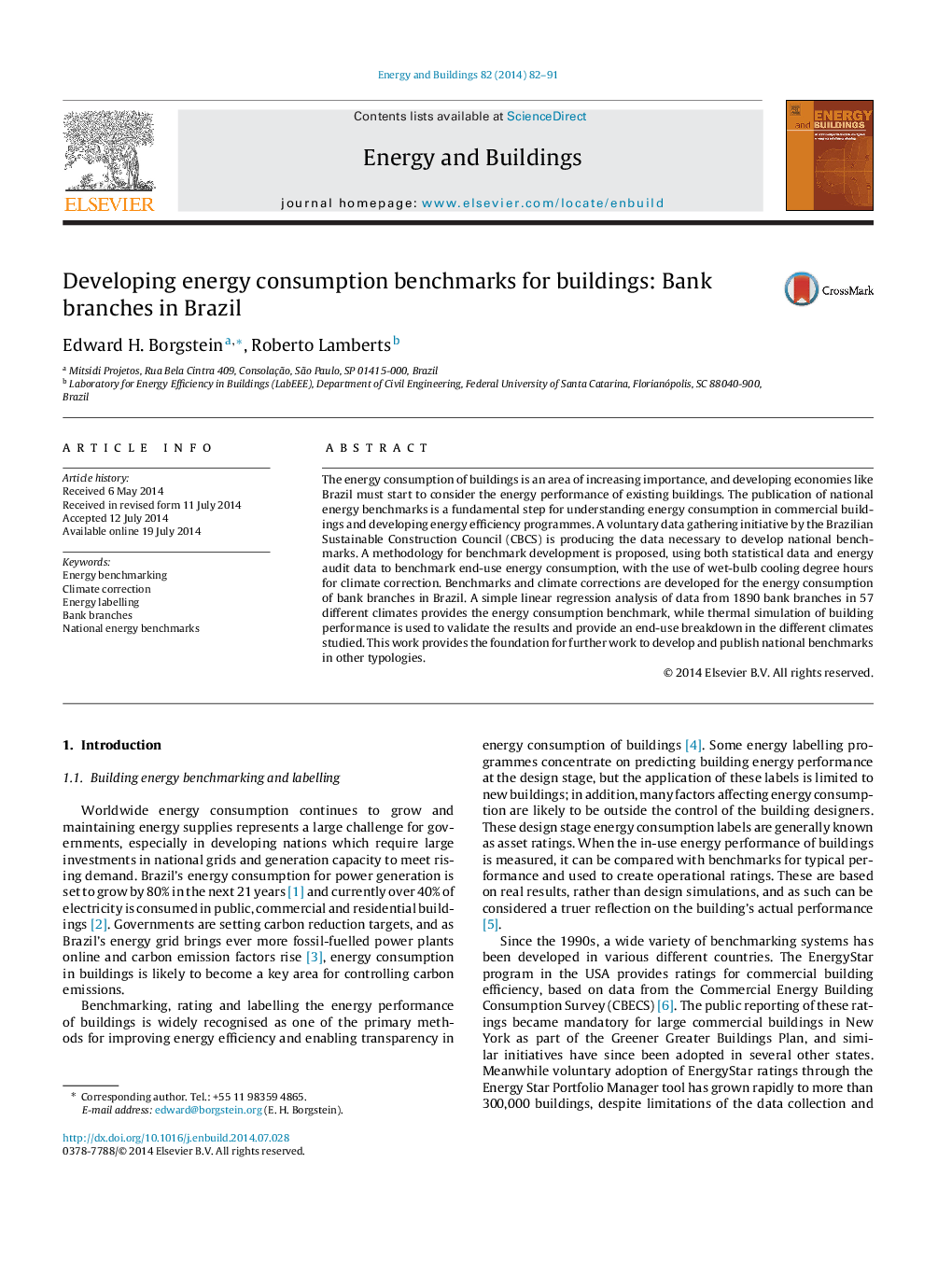| Article ID | Journal | Published Year | Pages | File Type |
|---|---|---|---|---|
| 262652 | Energy and Buildings | 2014 | 10 Pages |
•A methodology is proposed for the development of energy consumption benchmarks.•Data on energy performance of bank branches in Brazil is presented.•A climate correction methodology using cooling degree hours is developed.•Simulation and regression analysis are used to define an end-use energy benchmark.
The energy consumption of buildings is an area of increasing importance, and developing economies like Brazil must start to consider the energy performance of existing buildings. The publication of national energy benchmarks is a fundamental step for understanding energy consumption in commercial buildings and developing energy efficiency programmes. A voluntary data gathering initiative by the Brazilian Sustainable Construction Council (CBCS) is producing the data necessary to develop national benchmarks. A methodology for benchmark development is proposed, using both statistical data and energy audit data to benchmark end-use energy consumption, with the use of wet-bulb cooling degree hours for climate correction. Benchmarks and climate corrections are developed for the energy consumption of bank branches in Brazil. A simple linear regression analysis of data from 1890 bank branches in 57 different climates provides the energy consumption benchmark, while thermal simulation of building performance is used to validate the results and provide an end-use breakdown in the different climates studied. This work provides the foundation for further work to develop and publish national benchmarks in other typologies.
